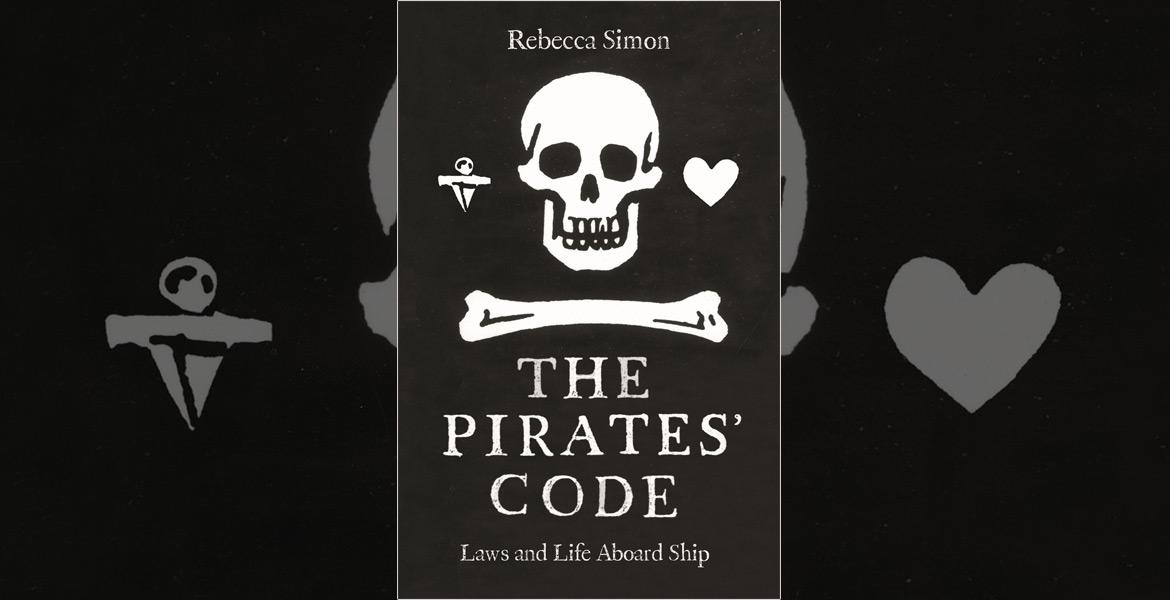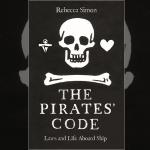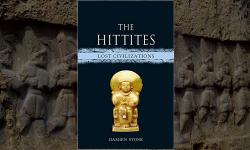Rebecca Simon, The Pirates' Code
Pirates sit front and centre in the popular imagination. The Golden Age of Piracy, and the two seventeenth-century rounds leading up to it, features heavily in films, books, television series and video games; in fact, in every possible form of entertainment it has a solid, unmoving base, and interest in it has lasted far longer than the age of piracy itself. There is something appealing about the idea: notions of freedom, of romanticism, of daring deeds and hunts for treasure, of overturning the social order. And also of egalitarianism and equality, based on the 'pirates' code'. Thanks to the recent rounds of pirate fiction, such as Black Sails and Pirates of the Caribbean, we have a vague understanding of what this means: of lives lived in a 'democratic' fashion; of some sort of internal 'welfare state' where the injured and infirm are cared for by the whole; that every man – and some women – could be treated equally; that there was, indeed, honour among thieves. As such, the pirates' code has been elevated to almost Chartist standards, a precursor of our more open, socially mobile culture today.
In her new book The Pirates' Code, Rebecca Simon addresses this growing legend head-on. Pulling apart the four main extant versions of the pirates' code, she uses their various articles as starting points for eight thematic chapters: work, life and wages; punishment; health and safety; sex, sexuality, and relationships; weapons and battle tactics; food and drink; vices; and entertainment. Throughout each, she discusses the reality and application of the rules, expanding out to consider the wider implications, the reactions of the authorities and of the commonality, illustrating her points with gripping stories of individual pirates and their crews. All of the 'A-listers' are there: Edward Teach and Jack Rackham, Anne Bonny and Mary Read, Benjamin Hornigold, Henry Avery, William Kidd and Henry Morgan. But alongside them are the little people, the ones who haven't made such a massive dent in the popular consciousness but who have still left their mark on the annals of history, through ballads, newssheets, and court records. It is a thematic account made not just approachable, but infinitely human and positively juicy; it contains all the tales we would expect of Western piracy, and so much more.
For The Pirates' Code doesn't just repeat the old legends; in some cases it blasts them into splinters. All the cherished notions that have been allowed to develop into truths – reactions to slavery, roles of women, sexuality, even walking the plank – are exploded, to be replaced by the more nuanced but equally intriguing reality. It is myth-busting par excellence, because it is not just based on opinion but on an impressive grasp of the primary sources. Everything that can be used has: there are the usual court records of the eye-catching trials, the 'exposés' by Captain Johnson and Daniel Defoe. But also there are the often overlooked ballads, news reports, diaries and letters that prove beyond all (reasonable) doubt that legends are false or misrepresented. Simon holds a mastery of the sources that leaves the reader in awe.
If one could, perhaps, wish for more, it would be an inclusion of piracy in other parts of the world at that time. Nothing, for example, is mentioned of Eastern piracy, nor of the formidable pirates who dogged the waters there. This might be a little out of the period with which Simon is dealing, but in the seventeenth century the Barbary pirates loomed just as large in contemporarySomeone or something living or occurring at the same time. English minds as their home-grown versions, yet there is silence here also. Then again, this might be taking nit-picking a step too far. It does, after all, fall outside the general remit of the book: perhaps the thing that sets Western pirates apart and keeps them as folk heroes is the very existence of their pirates’ code.
Despite the myth-busting, Simon does not destroy this fascination. Instead, she adds to it. In The Pirates’ Code she shows pirates in all their complexity and individuality, and she rejoices in it. Their stories, beautifully told, are so much more wonderful than the standard legends allow. The pirates inhabit the space between hero and villain, hunter and hunted, virtuous and immoral. They represent both the best and worst of us, and of the human condition. They absolutely deserve the attention – both positive and negative – that they’ve received since the seventeenth century. And the pirates’ code is, perhaps, no small part of the reason for this.
- Log in to post comments







